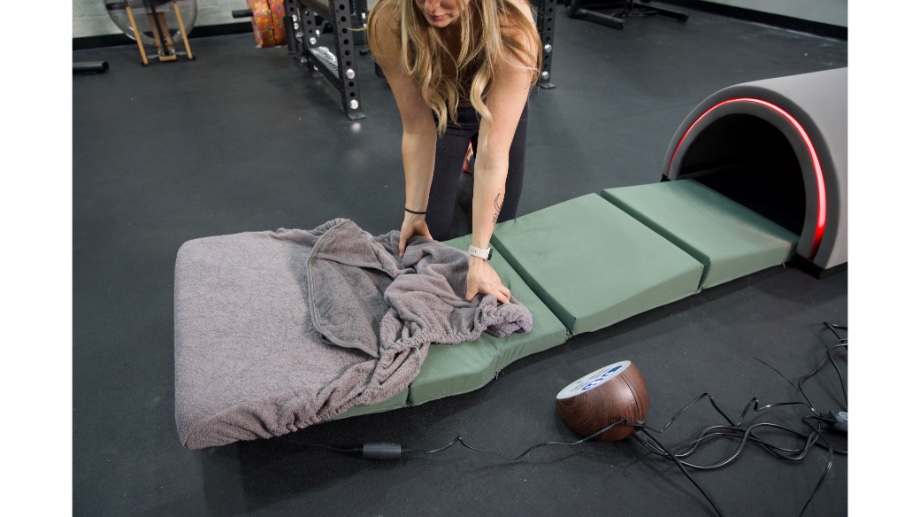We test and review fitness products based on an independent, multi-point methodology. If you use our links to purchase something, we may earn a commission. Read our disclosures.
Your body continuously burns energy throughout the day, measured in calories. Exercise may burn the most calories, but you’ll also be expending energy as you clean your house, focus on your work tasks, watch TV, and everything in between.
Even during a good night’s sleep, when your body is the most relaxed, you’ll still burn calories. Your body has to breathe, regulate its temperature, digest food, regenerate and repair cells, and other bodily functions requiring energy. Sleep is also a critical part of muscle recovery and something many Garage Gym Reviews readers may want to prioritize.
Not to mention, a lack of sleep can leave you feeling exhausted and unfocused the next day, another reason to prioritize a healthy sleep schedule.
So, how many calories do you burn while sleeping? Is better sleep the key to weight loss? Let’s take a look and see what the current research has to say.
Key Takeaways
- The average person burns about 50 calories per hour1 while sleeping.
- You burn the highest amount of calories during rapid eye movement sleep or REM sleep, where brain activity is the highest.
- The amount of calories you burn during sleep is heavily determined by your weight, metabolism, and the number of hours you get.
- You would have to increase your overall BMR to increase how many calories you burn during sleep.
Sleep and Energy Expenditure
When it comes to exercise and fitness routines, many people have a specific goal to gain or lose weight, which is determined by energy expenditure. If you burn more calories than you eat in a day, you’ll eventually lose weight, and if you eat fewer calories than you burn, you’ll actually gain weight.
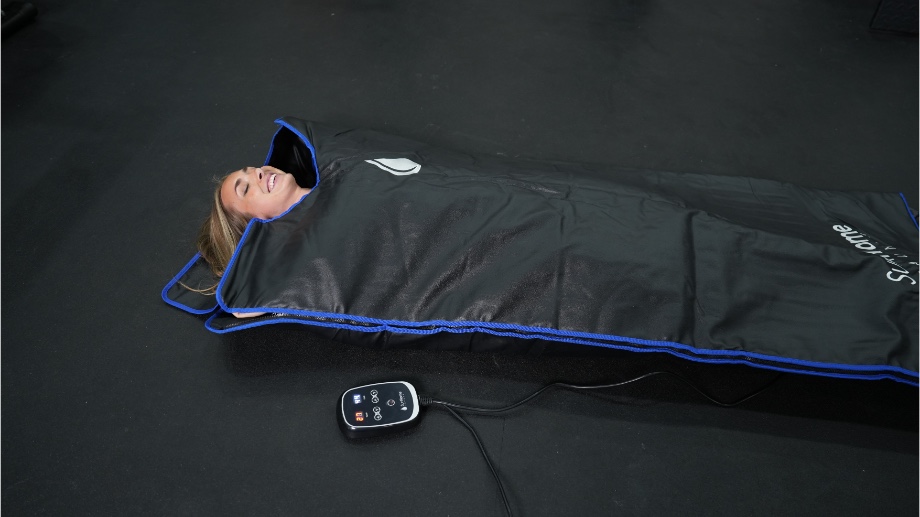
This is why many weight loss programs focus on how many calories are burned in a workout, and people looking to gain weight usually have to eat more food than they’re used to. However, one of the most often overlooked aspects of energy expenditure is the amount of calories burned during sleep.
We know that poor sleep is associated with obesity and can significantly interfere with weight loss efforts2, but is this due to the increase in hunger caused by poor sleep, or is sleep itself burning more calories?
To answer this question, you must first determine how many calories you burn while sleeping each night.
Determining How Many Calories Are Burned During Sleep
To determine how many calories you burn during sleep, you’ll want to start by calculating your basal metabolic rate, or BMR.
BMR refers to the amount of energy your body burns at complete rest. If you were to sleep for 24 hours straight, your BMR would be the total amount of calories burned over this time.
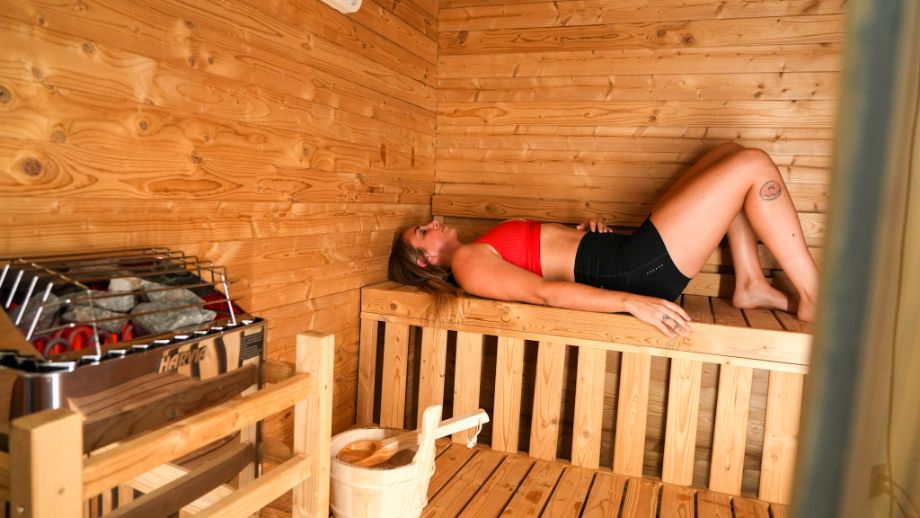
It’s important to note that BMR differs from total daily energy expenditure (TDEE), which considers your BMR and all the calories burned from your daily activities. As a nutrition coach, I typically use TDEE to help clients determine their daily calorie needs, as BMR will be significantly lower.
RELATED: How Many Calories Should I Eat Per Day?
Once you have your BMR, you can estimate how many calories you burn while you sleep. You can divide your BMR to find your average hourly energy expenditure and then reduce that number slightly during your sleeping hours, as metabolism decreases by about 15% during sleep3, according to the International Journal of Endocrinology.
How To Find Basal Metabolic Rate
It can be difficult to calculate your exact BMR without getting professional testing done in a lab; however, you can use tools like this BMR calculator to help you figure out an estimation.
That particular BMR calculator uses the Mifflin-St Jeor formula and the Katch-McArdle formula, two of the most accurate formulas, but you can always try another option like the Harris-Benedict equation if you prefer.
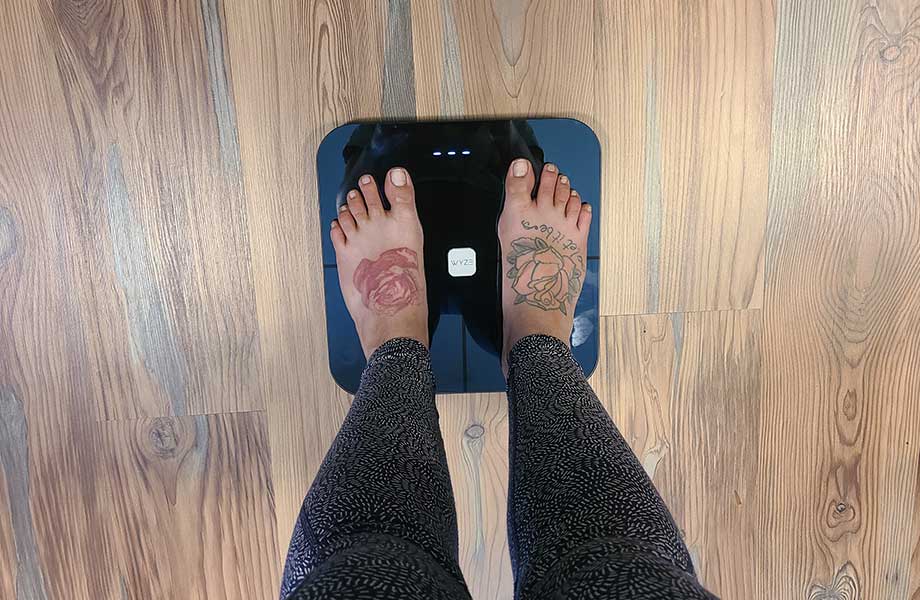
The Mifflin-St Jeor formula is used when you don’t know your body fat percentage or lean body mass. If you prefer to calculate this manually rather than using the calculator, though the calculator is much simpler, you can use the formulas below.
The Mifflin-St Jeor Formula
Note: This formula was designed with cis-men and cis-women in mind, if you identify as trans or nonbinary, yo may need to use your biological sex assigned at birth to get an accurate calculation.
Men: (10 x weight in kg) + (6.25 x height in cm) – (5 x age in years) + 5
Women: (10 x weight in kg) + (6.25 x height in cm) – (5 x age in years) – 161
The Katch-Mcardle Formula
If you know your body fat percentage or feel comfortable estimating it, you can use the Katch-McArdle formula instead, which uses your lean body mass. The formula is:
BMR = 370 + (21.6 x Lean Body Mass [kg])
You’ll need your lean body mass, which you can calculate using your body fat percentage and total body weight in kilograms with the following formula.
LBM = (Weight [kg] x (100 – Body Fat %) / 100)
What Affects BMR?
Complex formulas aside, what factors impact your basal metabolic rate? Why does this vary so much between individuals?
According to the American Journal of Clinical Nutrition, several factors impact BMR4, including:
- Age
- Weight
- Height
- Fat-free body mass
- Fat mass
- Hormones
- Diet
As you can see, while we can control a few things that influence our BMR, many of these are genetic factors out of our control. We can’t change our age or height, and changing our fat-free body mass and fat mass takes time.
Can You Increase How Many Calories Are Burned While Sleeping?
Increasing your basal metabolic rate is the only reliable way to increase the number of calories you burn while sleeping, and many people want a higher BMR to enjoy more food without worrying about excess weight gain. Unfortunately, increasing this number isn’t fast or easy, and as I mentioned in the section above, many of the factors influencing BMR are genetic. If they aren’t, they may be difficult to change without spending several months or years focused on specific goals like changing your body composition.
RELATED: Activities That Burn the Most Calories
However, there are three things that you can focus on to immediately impact your BMR and the number of calories burned during sleep.
Diet
Eating more food can increase your basal metabolic rate due to the thermic effect of food5, which refers to the amount of energy it takes for your body to digest the food you eat. If you’re looking to reduce your calorie intake, this doesn’t mean you need to start eating more, as simply changing your food sources can have a powerful impact.
RELATED: Calorie Counter Apps
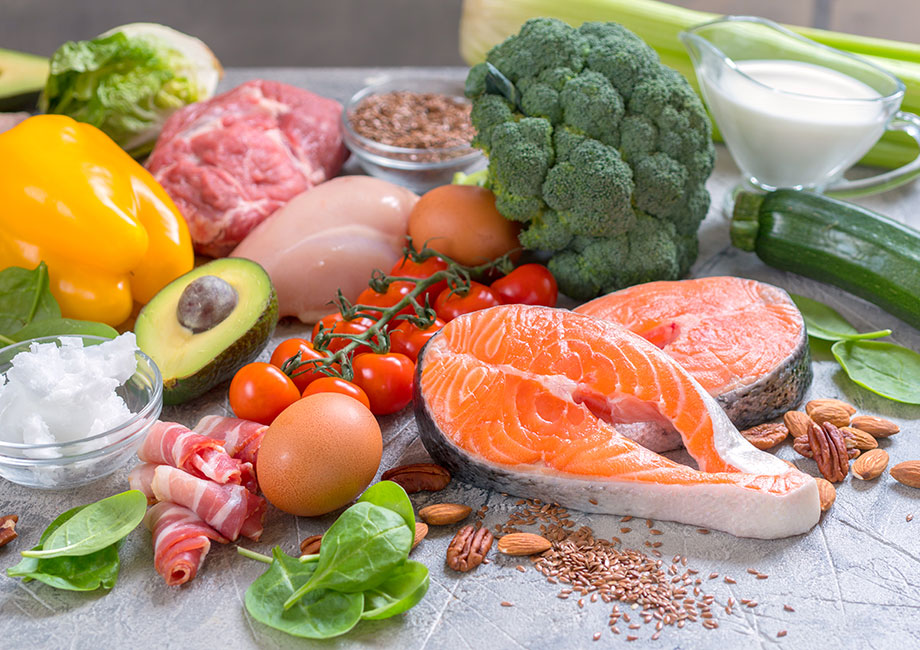
Different macronutrients have different thermic effects. Protein has the highest thermic effect9, around 20% to 30%. Carbohydrates have a thermic effect of 5% to 10%, and fat has a thermic effect of 0% to 3%.
This means that when you eat whole-food protein sources, your body will burn about 20% to 30% of those calories simply from the energy required to digest that protein. If you’re currently following a diet that’s low in protein, changing some food sources to increase your protein intake can increase your metabolic rate. A nutritionist or registered dietitian can help you if you’re stuck.
For those intentionally focused on weight gain who are having a hard time eating enough, this may play a small role. As you eat more food, you’ll also be burning more calories.
Exercise
Regular physical activity, particularly resistance training, can increase your BMR in the short and long term6. Resistance training can increase lean muscle mass, which is one of the biggest factors impacting your BMR.
After resistance training, your body has to work hard to recover and repair the damaged muscle. This also expends energy and can increase your metabolism for up to 48 hours7.

Higher daily activity levels can help increase your TDEE, but anything beyond complete rest isn’t considered part of your basal metabolic rate. Resistance training is one of the only forms of exercise that can cause an elevation in metabolism for up to 48 hours due to the recovery demands it places on the body.
RELATED: Calories Burned While Walking a Mile
Hormones
Hormones can play a significant role in BMR. For example, important hormones like thyroid, insulin, estrogen10, and testosterone11 can all have impacts on our metabolism, and these hormone levels may fluctuate over the years.
When these hormones are too low or not properly balanced, your metabolism may run a little slower than normal, lowering your BMR.
If you have any concerns, it’s worth speaking to your healthcare provider. They can order lab work and help you address any hormone deficiencies or imbalances that can impact your metabolism.
Why Sleep is Important
While getting more shut-eye doesn’t necessarily mean burning more fat, we’ve already established that poor sleep can be associated with a number of health conditions.
According to the Centers For Disease Control (CDC), sleep deprivation has been linked9 to elevated cortisol levels, obesity, diabetes, insulin resistance, hypertension, and other medical conditions.
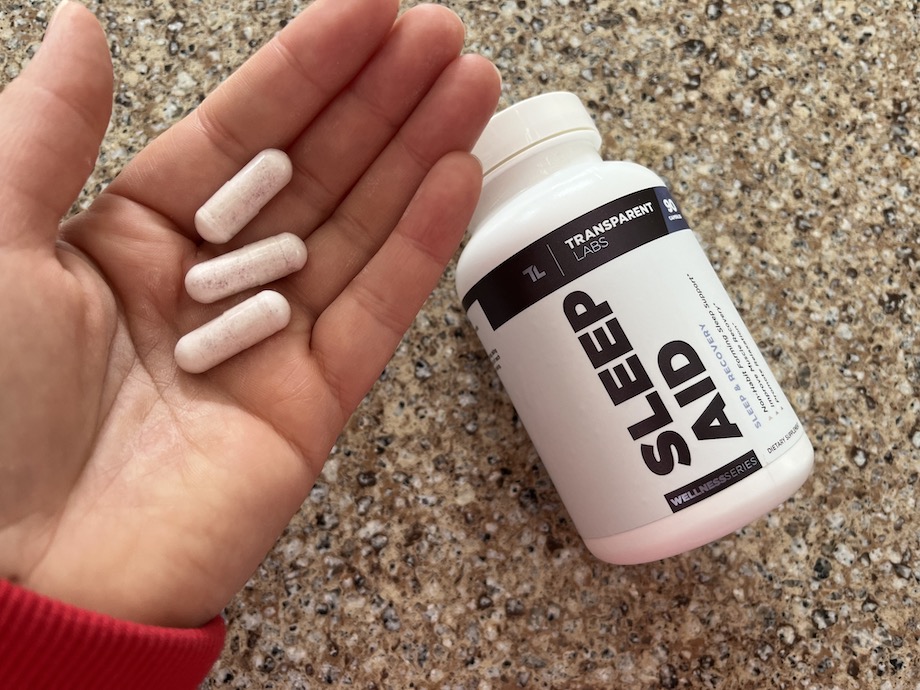
If you’re struggling with your sleep, proper sleep hygiene and good sleep habits can help, such as avoiding bright screens and stimulants in the evening and sleeping in a cool room. For those who’ve tried everything and still can’t sleep, it may be worth seeing a medical professional to be assessed for various sleep disorders.
How Many Calories Do You Burn While Sleeping? Final Thoughts
We burn calories every night while we sleep, despite it being a period of rest, and our basal metabolic rate dictates the number of calories we burn. Getting enough sleep is very important for overall health, and sleep quality matters, but sleep isn’t magically burning more calories than any other time of the day; it’s simply bringing you back to your BMR, if not slightly lower.
While most factors influencing your BMR are genetic, you can control a few things.
Regular exercise, a diet high in protein, and ensuring your hormone levels are balanced can all help increase BMR and impact the amount of calories burned while you sleep.
How Many Calories Do You Burn While Sleeping? FAQs
How many calories do you burn sleeping 8 hours?
Adults burn an average of 50 calories per hour1, though this can fluctuate based on the individual. That means most adults burn about 400 calories while sleeping for eight hours, though this will vary based on your basal metabolic rate (BMR).
Can I burn 1000 calories while sleeping?
Probably not. Adults burn an average of 50 calories per hour while sleeping, which is about 400 calories for every 8 hours of sleep. Unless you have an extremely high basal metabolic rate (BMR) or sleep for nearly an entire day, you’re unlikely to burn 1,000 calories while sleeping.
How many calories do you burn if you stay in bed all day?
If you stay in bed all day with very little physical activity, your calorie expenditure will likely be very close to your basal metabolic rate (BMR), as you won’t be doing much physical activity to burn extra calories.
Do you burn fat while you sleep?
Yes. Your body uses a mix of fatty acids, glucose from carbohydrates, and ATP as fuel sources for different types of activity. At rest or during any other low-intensity activity, most of this energy will come from fat8.
References
- Harvard Health. (2021, March 8). Calories burned in 30 minutes for people of three different weights. https://www.health.harvard.edu/diet-and-weight-loss/calories-burned-in-30-minutes-for-people-of-three-different-weights
- Papatriantafyllou, E., Efthymiou, D., Zoumbaneas, E., Popescu, C. A., & Vassilopoulou, E. (2022). Sleep Deprivation: Effects on Weight Loss and Weight Loss Maintenance. Nutrients, 14(8), 1549. https://doi.org/10.3390/nu14081549
- Sharma, S., & Kavuru, M. (2010). Sleep and metabolism: an overview. International journal of endocrinology, 2010, 270832. https://doi.org/10.1155/2010/270832
- Johnstone, A. M., Murison, S. D., Duncan, J. S., Rance, K. A., & Speakman, J. R. (2005). Factors influencing variation in basal metabolic rate include fat-free mass, fat mass, age, and circulating thyroxine but not sex, circulating leptin, or triiodothyronine. The American journal of clinical nutrition, 82(5), 941–948. https://doi.org/10.1093/ajcn/82.5.941
- Ravn, A. M., Gregersen, N. T., Christensen, R., Rasmussen, L. G., Hels, O., Belza, A., Raben, A., Larsen, T. M., Toubro, S., & Astrup, A. (2013). Thermic effect of a meal and appetite in adults: an individual participant data meta-analysis of meal-test trials. Food & nutrition research, 57, 10.3402/fnr.v57i0.19676. https://doi.org/10.3402/fnr.v57i0.19676
- Poehlman, E. T., & Melby, C. (1998). Resistance training and energy balance. International journal of sport nutrition, 8(2), 143–159. https://doi.org/10.1123/ijsn.8.2.143
- Speakman, J. R., & Selman, C. (2003). Physical activity and resting metabolic rate. The Proceedings of the Nutrition Society, 62(3), 621–634. https://doi.org/10.1079/PNS2003282
- Human Kinetics. (n.d.). The body’s fuel sources. https://us.humankinetics.com/blogs/excerpt/the-bodys-fuel-sources
- Ravn, A. M., Gregersen, N. T., Christensen, R., Rasmussen, L. G., Hels, O., Belza, A., Raben, A., Larsen, T. M., Toubro, S., & Astrup, A. (2013). Thermic effect of a meal and appetite in adults: an individual participant data meta-analysis of meal-test trials. Food & nutrition research, 57, 10.3402/fnr.v57i0.19676. https://doi.org/10.3402/fnr.v57i0.19676
- Tao, Z., & Cheng, Z. (2023). Hormonal regulation of metabolism-recent lessons learned from insulin and estrogen. Clinical science (London, England : 1979), 137(6), 415–434. https://doi.org/10.1042/CS20210519
- Welle, S., Jozefowicz, R., Forbes, G., & Griggs, R. C. (1992). Effect of testosterone on metabolic rate and body composition in normal men and men with muscular dystrophy. The Journal of clinical endocrinology and metabolism, 74(2), 332–335. https://doi.org/10.1210/jcem.74.2.1730811
Further reading

Our Horizon Fitness T101 Treadmill Review goes deep into this budget-friendly home running machine. Read more

Is protein powder bad for your kidneys? A registered dietitian explains how to support your kidneys without sabotaging your gains! Read more

Looking for the best treadmill for bad knees? We have you covered, with six carefully chosen picks for you to get your sweat on. Read more

Is the super greens powder from Live It Up worth it? The GGR nutrition experts cover everything you need to know in our Live It Up Super Greens review! Read more

